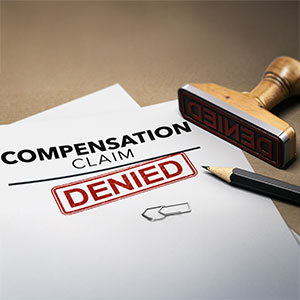Federal Medicaid Statute Amendments Effective October 1, 2017
Personal InjuryAmendments to the federal Medicaid Act that took effect on October 1, 2017 are changing the way that Medicaid liens attach to personal injury settlements in Florida and across the nation.
UPDATE-
This change in the law was superseded by the Bipartisan Budget Act of 2018 (BBA) passed in February 2018. The change in the law reverts back to third party liability reimbursement requirements before October 2017. As such, Medicaid liens attach to the “medical” portion of a claimant’s liability settlement. In the event that you have an undifferentiated settlement, you may need to retain lien resolution counsel to dispute the lien and seek apportionment under Ahlborn (cited below).
So What Changed On October 1, 2017 At The Federal Level?
Before October 1, 2017, the federal Medicaid statute was limited recovery for payments for “medicare care from any third party.” After October 1, 2017, the statutes allows recovery of payments “from a third party that has a legal liability to pay for care and services available under the plan.”
This change is significant because prior to this legislative change, there was an argument that could be made under Arkansas Dep’t of Health & Human Services v. Ahlborn that Medicaid’s recovery rights should be limited to the percentage of the overall recovery obtained by the plaintiff. In other words, if the plaintiff only recovered 5% of the value of their overall claim, then Medicaid should only get 5% of the amount that they claim.
Florida’s Medicaid Recovery Statute
Florida has its own Medicaid lien recovery statute that covers the entire settlement amount rather than just the amount of the settlement for “medical expenses.” Section 409.190(6)(a), Fla. Stat. below says:
(a) The agency is automatically subrogated to any rights that an applicant, recipient, or legal representative has to any third-party benefit for the full amount of medical assistance provided by Medicaid. Recovery pursuant to the subrogation rights created hereby shall not be reduced, prorated, or applied to only a portion of a judgment, award, or settlement, but is to provide full recovery by the agency from any and all third-party benefits. Equities of a recipient, his or her legal representative, a recipient’s creditors, or health care providers shall not defeat, reduce, or prorate recovery by the agency as to its subrogation rights granted under this paragraph.
Florida’s statutory language may have been in doubt due to a federal court decision in the Northern District of Florida on July 18, 2017 finding Florida’s Medicaid lien statute unconstitutional with regard to the process to provide “clear and convincing evidence” that that statutory formula (Settlement minus 25% for attorney fees, minus taxable costs, minus half of what remains = lien) is unfair.
However, the October 1, 2017 amendments to the federal statute will likely change what it means to be “unfair” (the actual word used is “arbitrary”). If the federal statute is meant to apply to a claimant’s entire settlement and not just the portion for medical expenses, then applying the statutory formula to the entire amount is not arbitrary (or at least so the argument goes).
So What Is An Injured Personal Injury Plaintiff To Do About Medicaid Liens?
The answer depends on your case. There are some cases that will never be financially feasible to fight regardless of how wrong it may be. I have certainly had those cases and paid Medicaid liens begrudgingly. However, if your case involves at least 6-figures, there is a chance that it may be worthwhile to challenge the lien.
When settling your personal injury case in Florida, you not only settle with the person or entity who caused your injury but you also have to eventually settle up with any lienholders against your recovery.
Hiring A Personal Injury Attorney Is Needed To Settle All Aspects Of Your Case
If you have been injured due to a personal injury accident or you have a claim for medical malpractice and there is a lien against your settlement, you should contact a Lakeland personal injury attorney to help you settle all aspects of your case. There are many cases where a reduction in the liens can be had because the lienholders often use third party debt collectors who are willing (and authorized) to negotiate the lien. However, you have to ask for a reduction and you have to ask for the reduction in the right way. For a free consultation on your personal injury case, contact us today.
The amendments to the federal Medicaid Act are below:
Bipartisan Budget Act of 2013. Section 202:
SEC. 202. STRENGTHENING MEDICAID THIRD-PARTY LIABILITY. (a) PAYMENT FOR PRENATAL AND PREVENTIVE PEDIATRIC CARE AND IN CASES INVOLVING MEDICAL SUPPORT.—Section 1902(a)(25) of the Social Security Act (42 U.S.C. 1396a(a)(25)) is amended—(b) RECOVERY OF MEDICAID EXPENDITURES FROM BENEFICIARY LIABILITY SETTLEMENTS.— (1) STATE PLAN REQUIREMENTS.—Section 1902(a)(25) of the Social Security Act (42 U.S.C. 1396a(a)(25)) is amended— (A) in subparagraph (B), by striking ‘‘to the extent of such legal liability’’; and (B) in subparagraph (H), by striking ‘‘payment by any other party for such health care items or services’’ and inserting ‘‘any payments by such third party’’. (2) ASSIGNMENT OF RIGHTS OF PAYMENT.—Section 1912(a)(1)(A) of such Act (42 U.S.C. 1396k(a)(1)(A)) is amended by striking ‘‘payment for medical care from any third party’’ and inserting ‘‘any payment from a third party that has a legal liability to pay for care and services available under the plan’’. (3) LIENS.—Section 1917(a)(1)(A) of such Act (42 U.S.C. 1396p(a)(1)(A)) is amended to read as follows: ‘‘(A) pursuant to— ‘‘(i) the judgment of a court on account of benefits incorrectly paid on behalf of such individual, or ‘‘(ii) rights acquired by or assigned to the State in accordance with section 1902(a)(25)(H) or section 1912(a)(1)(A), or’’. (c) EFFECTIVE DATE.—The amendments made by this section shall take effect on October 1, 2014.
The effective date however has been delayed again until October 1, 2017 by the MEDICARE ACCESS AND CHIP REAUTHORIZATION ACT OF 2015, 114 P.L. 10 , enacted April 16, 2015 which provided:
Sec 220.DELAY IN EFFECTIVE DATE FOR MEDICAID AMENDMENTS RELATING TO BENEFICIARY LIABILITY SETTLEMENTS.
Section 202(c) of the Bipartisan Budget Act of 2013 (division A of Public Law 113-67; 42 U.S.C. 1396a note), as amended by section 211 of the Protecting Access to Medicare Act of 2014 (Public Law 113-93; 128 Stat. 1047) is amended by striking “October 1, 2016” and inserting “October 1, 2017”.


